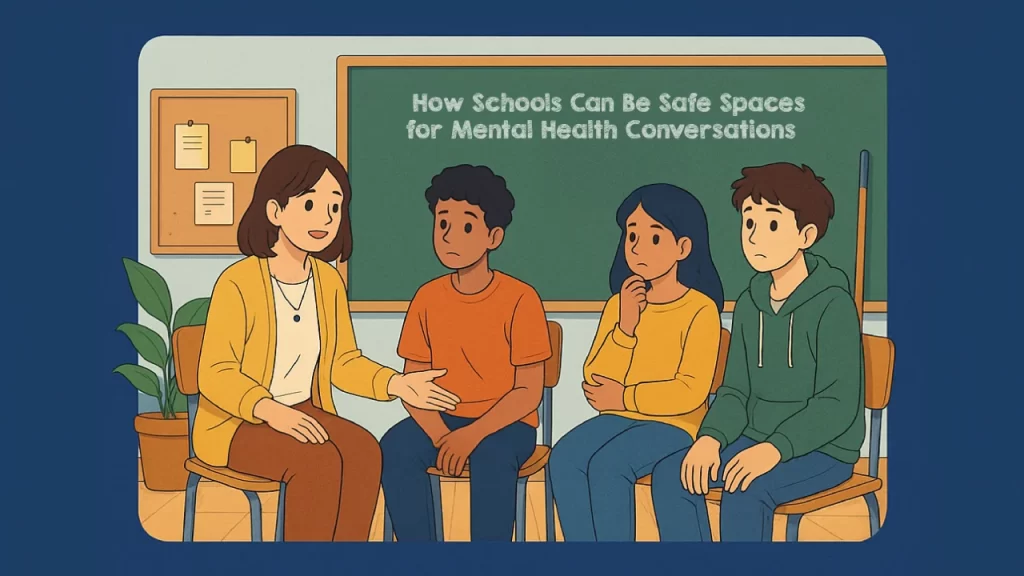
Picture a school not only as an institution of education but as a haven — where kids’ minds are as secure as their backpacks are in the classroom. In our high-stakes, always-on world, students require more than good grades. They need emotional safety. And schools are the ideal places to begin talking about mental health.
From Chalkboards to Heartboards
Gone are the days when a student’s silence gets confused with discipline. Nowadays, silence may often mean stress, anxiety, or even more serious issues. It’s time we transform our classrooms from a space of teaching to a space of relating. There should be a classroom where it’s permissible to say, “I’m not okay today.” That’s where learning happens — when the students feel their emotions are no less important than their grades.
Mental Health in the Lesson Plan
Math and science are critical — no question. But so is learning to deal with pre-test anxiety or knowing failure doesn’t equal worth. Schools can incorporate mental health into everyday coursework. A literature class might discuss emotional resilience through the character of a novel. A science class might discuss the brain’s reaction to stress. Mental health should be learned as easily as multiplication tables.
Empowering the Adults in the Room
Teachers tend to be the first to spot something amiss. By providing them with general training in mental health and teaching them how to listen with empathy, we assist them in becoming allies, rather than merely lecturers. At times, a concerned teacher is the individual who assists a student in accessing the support they truly require.
Creating “Pause” Corners
Occasionally, all a child requires is a minute to catch one’s breath. Schools can create warm, welcoming “pause corners” with comfortable seating, soothing colors, and tools such as journals or mindfulness cards. These are not an escape from education, but rather the pathways to facilitate more profound learning.
Building a Circle of Support
School friendships are strong. By teaching students to be kind, understanding, and good listeners, schools can transform peer groups into support systems. A friendly word from a peer can sometimes heal more than a hundred lectures.
Schools that are open to mental health discussions open the door to improved learning, healthier relationships, and brighter futures. Let’s create classrooms & environments where young minds are fostered and nurtured!
Ace Your Exams With Simple Tips
Nurturing Young Minds through the 4iC Model
Three facilities that make our students future-ready
An Insight Into The Residential Education Model in Telangana
